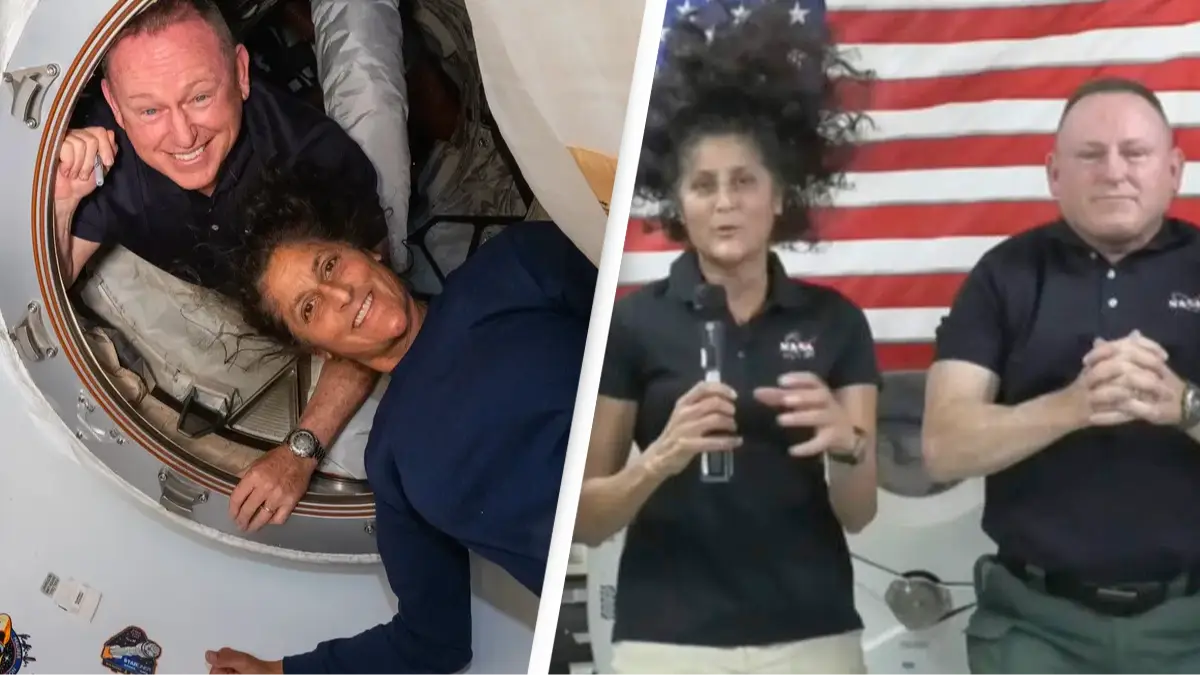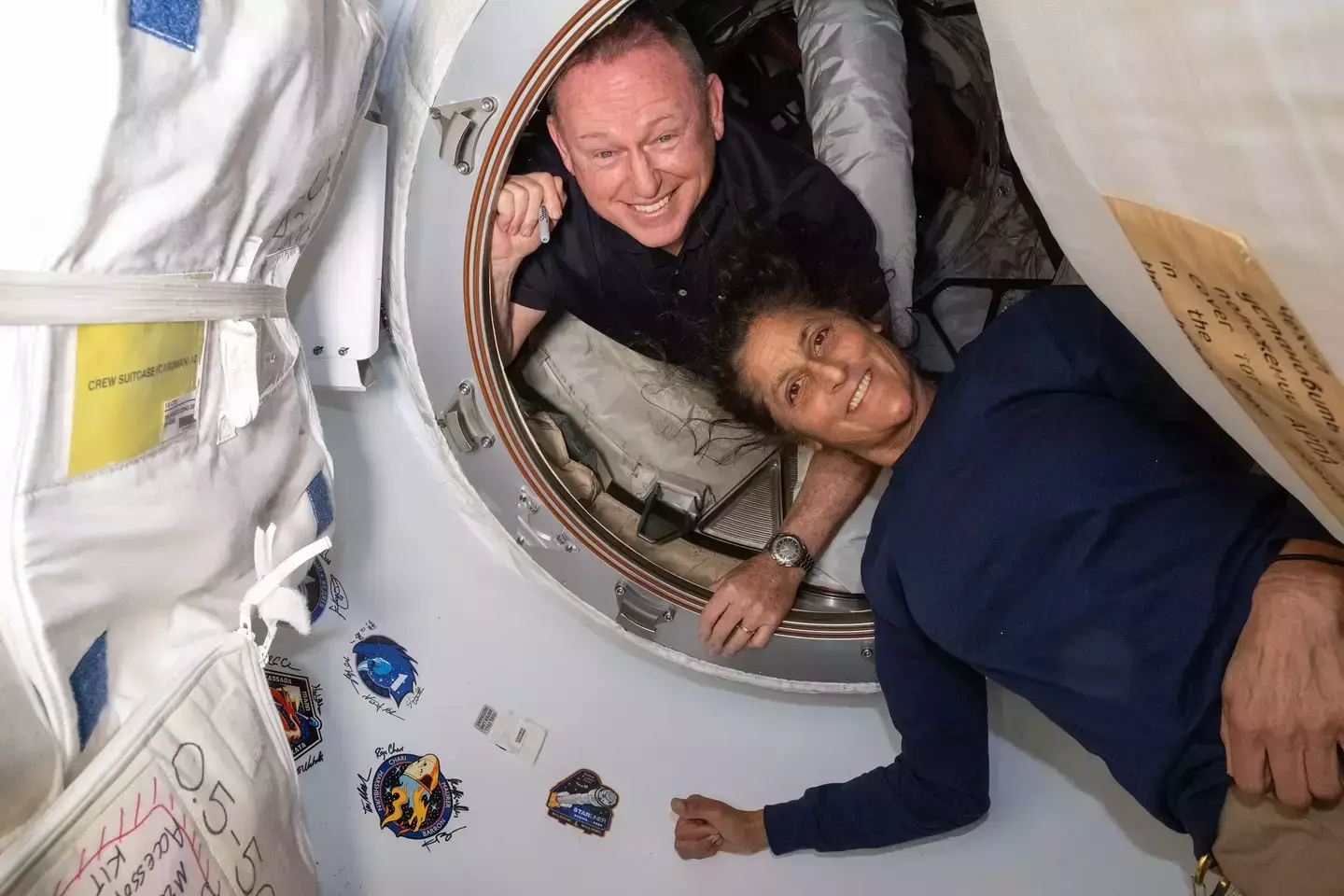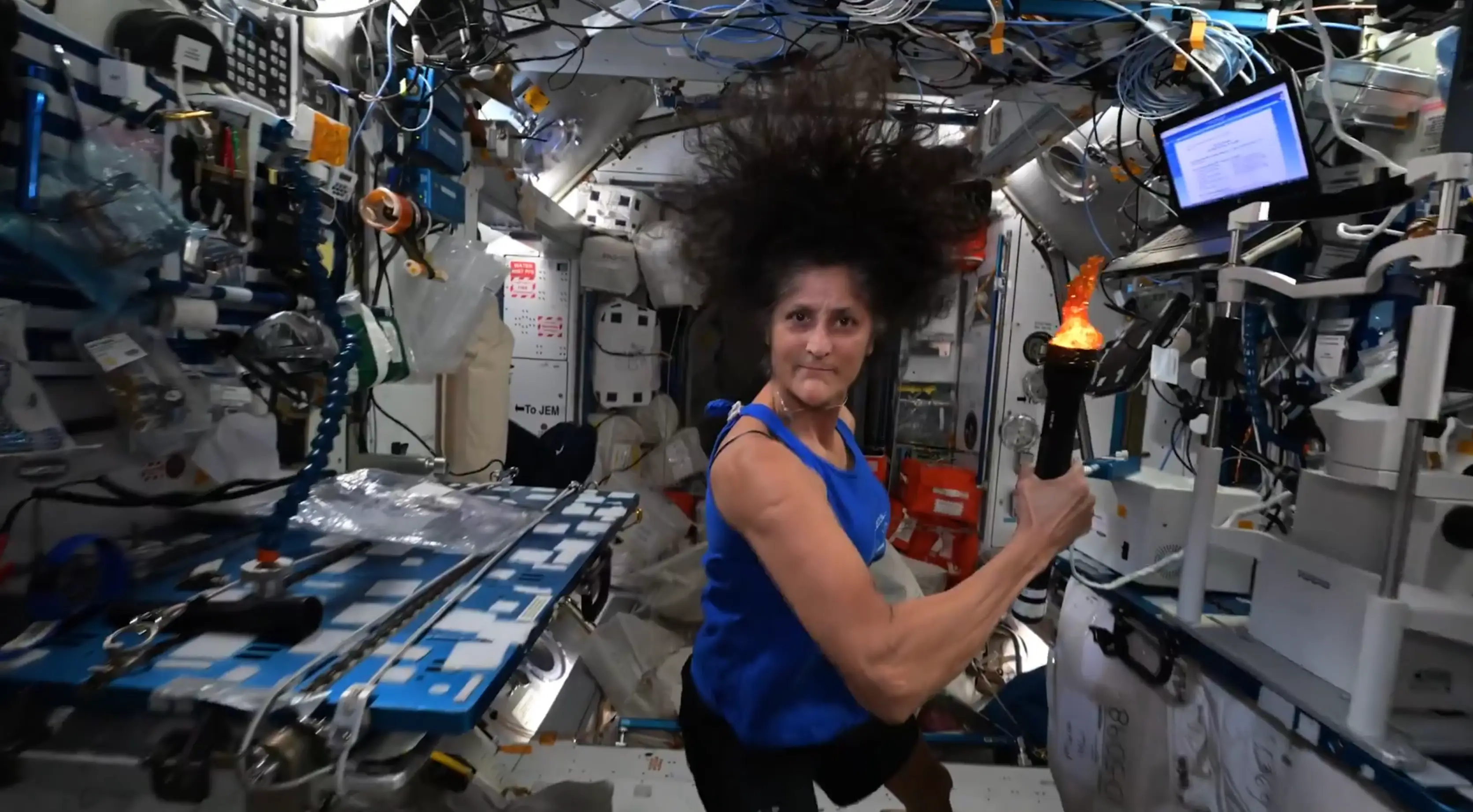
The reality of being stuck in space for what could be 200 days longer than initially anticipated would weigh heavy on anyone.
Anyone that is except for NASA astronauts Barry Wilmore and Suni Williams, who, in the face of disaster, have stayed positive and in high spirits.
But it's not been an easy ride and it is far from over, with the real possibility being that they could be stuck floating around in space until February 2025.
Advert
It was supposed to be just an eight-day mission, they were flying to the International Space Station (ISS) when they encoutered several problems with the capsule after they set off 64 days ago.
The Boeing Starliner experienced five helium leaks, five maneuvering thrusters go dead and a propellant valve failing to close completely.
They are aboard the ISS and are accompanied with other astronauts, but unlike Wilmore and Williams, their means of getting home has not faltered.
The pair opened up about life 'off Earth' during a briefing with reporters, with Williams explaining they have been keeping 'thoroughly busy' on board.

"We've been thoroughly busy up here, integrated right into the crew." he said.
"It feels like coming back home. It feels good to float around. It feels good to be in space and work up with the ISS team. So yeah, it's great to be up here."
While the pair remain stuck in space, they must still carry out their duties - with the ISS affectively being a laboratory that hurtles 17,500mph through space, as it orbits our planet every 90 minutes.
So, what are those duties?
The pair have swapped out a urine processing pump, they must inventory of the station's food supplies, and Wilmore has even serviced freezers that are being used to hold research samples, as per The Washington Post.
Speaking to the University of Strathclyde Glasgow, Scotland, previously about life in space, Williams said: "You have to work out to maintain your bone density and muscle mass, so that’s part of the day."

She added: "You also leave a family behind and being able to make a phone call once a day or doing a video conference on the weekend is really nice. Those are the hardest parts about going away for that long."
Both 61-year-old Wilmore, of Murfreesboro, Tennessee, and 58-year-old Williams, from Needham, Massachusetts, have left behind families - and are also both retired Navy captains.
Wilmore is married with two daughters, and Williams is also married and owns dogs.
One of the many science experiments the pair are conducting while up there, is scanning their veins via an ultrasound machine to see just how space can affect the human body, and are collating data.
Some of the other duties include weightless Olympics-inspired workouts - one of the many things the NASA astronauts do to keep busy.